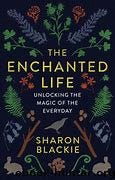In this chapter, we’ve explored the nature and onset of our disenchantment, and it’s certainly a concept which has been studied and analysed in many different ways, over the years. Economists, philosophers and cultural commentators have picked it to pieces using the theories that are beloved of their own disciplines, often taking Max Weber’s ideas as their starting points; theologists concerned about the secularising of the world have put their own more religious spin on the term. But although there’s been a good deal of focus on disenchantment, there has been relatively little analysis of the state of enchantment itself. What does it actually mean, to be enchanted? How do you do it? What are the components of an enchanted frame of mind? What is actually going on inside us when we’re enchanted – what is the lived experience of it for us as individuals? As a psychologist, these questions interest me much more. And as a human being planted in a world which is in various and varying states of growing crisis, they seem to me to be infinitely more essential.
When we turn to the usual sources of definitions for clues about what enchantment is, they offer us very little help. The Oxford Dictionary13 provides two possible meanings, which are echoed in other major dictionaries in the English-speaking world:
A feeling of great pleasure; delight
The state of being under a spell; magic
In other words, the word as it is commonly used today is associated either with the practice of magic, or with a feeling of pleasure at something which is charming. But if we return to Weber’s idea of disenchantment as characterised by ‘rationalization and intellectualization’, as a stripping away of everything that we once held sacred in the world, then we approach much more interesting territory when we begin to think about what the opposite of that state might be.
I believe that the state of enchantment has four major components:
It is founded upon a sense of fully participating in a living world – a feeling of belonging rather than separation.
It incorporates feelings of wonder, and curiosity. To be enchanted is to be comfortable with the fact that not everything can be explained; to tolerate, even welcome, the presence of mystery.
Enchantment is not all in the head, it is very much a function of our lived, embodied experience in the world.
Enchantment is an emanation of the mythic imagination, and is founded on an acknowledgement of myth and story as living principles in the world.
…..


